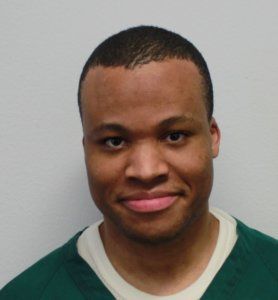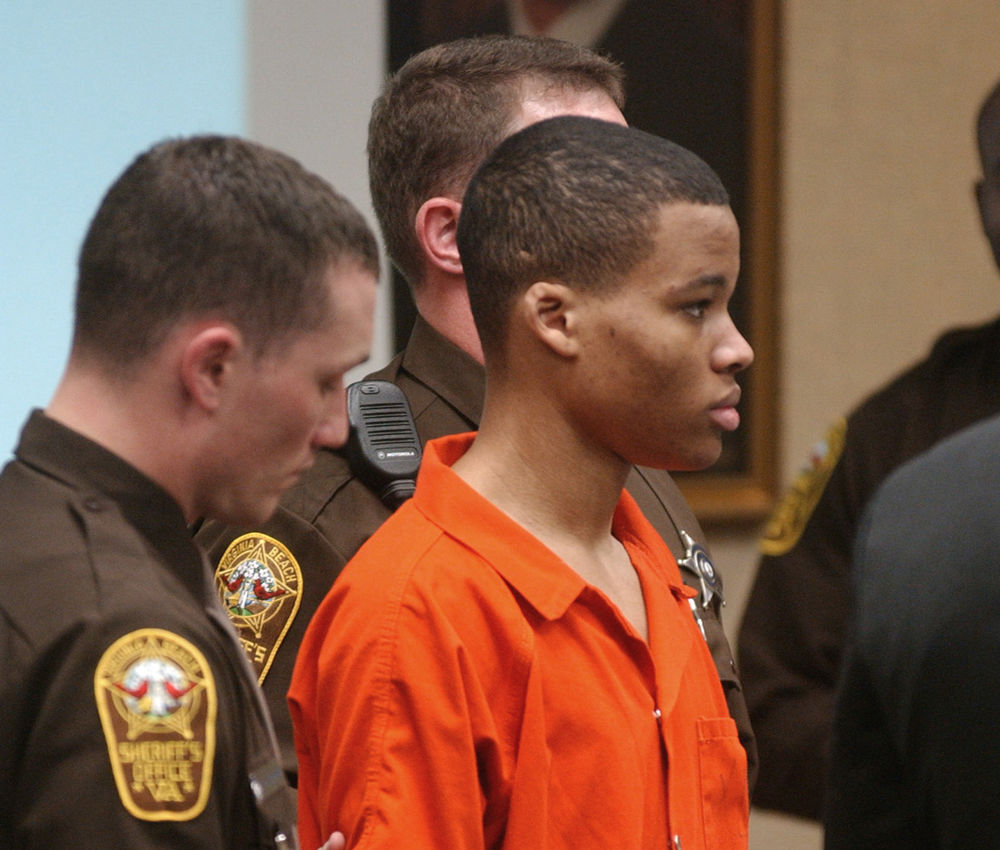
It was 17 years ago, Tuesday, that then-17-year-old Lee Boyd Malvo looked across U.S. Route 50 in Falls Church, Virginia, and gave the “go” signal.
John Allen Muhammad then pulled the trigger of a rifle from the trunk of his Chevrolet Caprice.
Lawyers for the younger Capital Beltway sniper Malvo — convicted in the shootings that left 10 strangers dead in a 2002 spree spanning three weeks — will argue before the U.S. Supreme Court Wednesday that he should be resentenced for his Virginia crimes.
Malvo was 17 in 2002, when he and Muhammad killed 10 people in Virginia, Maryland and the D.C.
A jury in Chesapeake, Virginia, where the case was moved due to pretrial publicity, spared Malvo’s life by choosing against a recommendation of execution.
Malvo was sentenced to two life sentences for the Fairfax County murder of FBI analyst Linda Franklin, who was shot in the parking lot of a Home Depot in Falls Church.
Under Virginia’s new-at-the-time law, Malvo was convicted of capital murder as an act of terrorism, as well as murdering multiple people in a three-year time period.
He later pleaded guilty in Spotsylvania County, Virginia, and received two more life sentences.
Additionally, he received six life sentences for six murders in Montgomery County, Maryland.
In June 2017, a federal appeals court threw out Malvo’s four Virginia sentences, and ordered he be resentenced in light of U.S. Supreme Court rulings regarding life sentences for juveniles. Malvo is now 34.
Though Malvo was eligible for execution when sentenced in 2003, the Supreme Court ruled in 2005 that capital punishment was unconstitutional for juveniles.

In 2012, in Miller vs. Alabama, the high court determined juveniles could not be sentenced to mandatory life sentences. In the opinion, Justice Elena Kagan wrote: “Mandatory life without parole for a juvenile precludes consideration of his chronological age and its hallmark features — among them, immaturity, impetuosity, and failure to appreciate risks and consequences.”
The court’s 2016 ruling, in Montgomery vs. Louisiana, said the Miller ruling should apply retroactively to earlier life-in-prison sentences for juveniles.
Virginia Attorney General Mark Herring has argued the judge in Malvo’s case had the discretion to lower his life term, but decided against it. Malvo’s attorneys have said, at the time, Virginia attorneys and judges didn’t believe lowering the sentence was an option.
In Maryland, Malvo’s convictions were upheld in 2017, but he has appealed the decision to the state’s highest court, the Court of Appeals of Maryland.
Muhammad was executed in 2009, for the Prince William County, Virginia, murder of Dean Harold Meyers.








